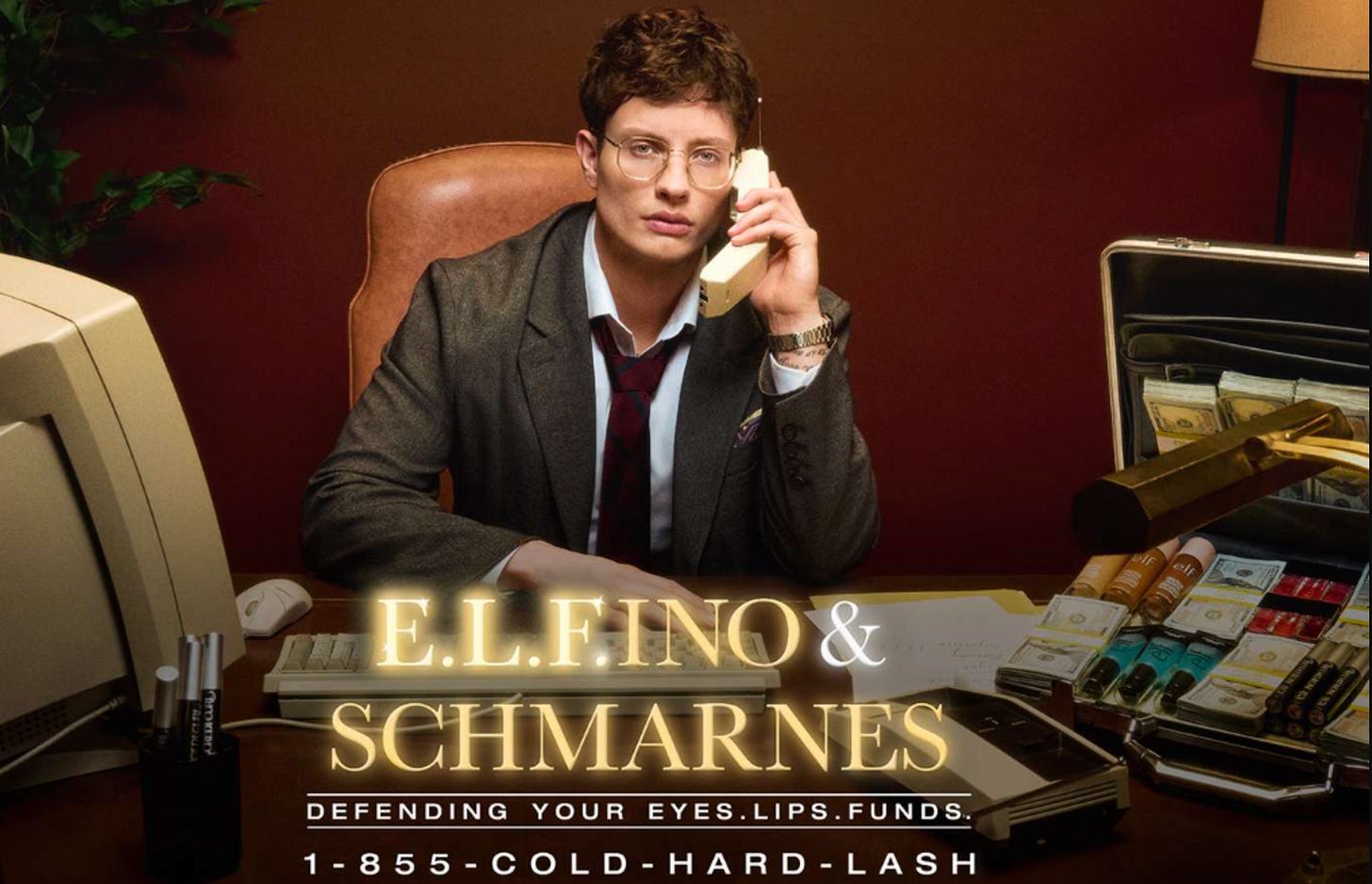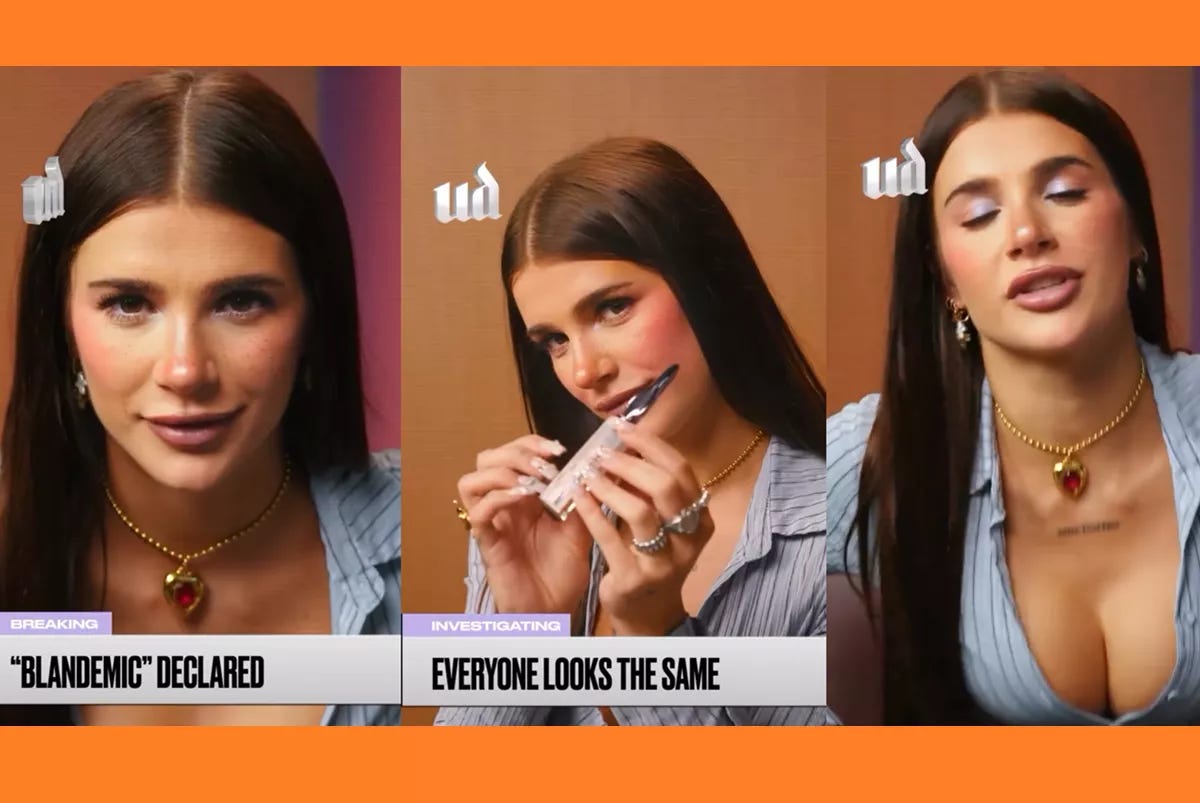Beauty this week has been mostly dominated by the news that e.l.f. cast comedian Matt Rife to star in their new tongue-in-cheek ad campaign. But it backfired almost instantly. Why? Rife had made jokes about domestic violence in his 2023 Netflix special, and many felt his involvement clashed badly with a brand that trades on inclusivity and empowerment.
The reaction online was indeed fierce. Beauty fans and influencers - particularly women and members of the LGBTQ+ community, ie e.l.f.’s core audience - questioned why the company would align itself with someone whose material they felt undermined issues that directly impacted them. Within days, e.l.f. issued an apology, admitting it had “missed the mark with people we care about in our e.l.f. community.” The brand said it was shutting down the campaign immediately, though the ads continued circulating online.
Sure, there’s a larger debate here about comedy and censorship - personally I feel like comedy is our last form of guilt-free relief and comedians should have semi free reign. But I can’t help thinking that when giant brands like e.l.f misstep like this, it’s rarely accidental. The number of people who would have scrutinised this campaign before it even made it to set would have been sizeable - layers of sign-offs, strategy decks, and legal checks. And then there’s Rife’s own team, who no doubt weighed up whether this partnership was a good fit, and probably landed on the pragmatic conclusion: take the money and run. Which makes you wonder if the real strategy here isn’t about alignment at all, but about courting outrage and riding the wave of attention it creates.
It feels like in lieu of making anything truly exceptional product-wise - and with so many mass brands clawing for relevance - rage-baiting has become the newest way to cut through the noise. Court controversy, spark debate, fuel outrage… and suddenly, everyone’s talking about you. But here’s the risk: does the buzz actually translate into loyalty, or are you quietly eroding the foundations of your brand? Because while shock can grab attention in the moment, it’s hard to rebuild credibility once you’ve taught consumers not to trust you.
Take Urban Decay’s recent campaign with an OnlyFans performer as the face of its new launch. On paper, it should have been disruptive. After all, Urban Decay has always positioned itself as the bold, alt-leaning brand that championed outsiders. But instead of pushing boundaries, the execution fell flat. The star? Young, thin, white, and conventionally pretty - wearing fairly neutral make-up, hardly the subversive face you’d expect. The products? An array of safe, neutral shades that could have come from any brand. It was billed as a clash, but really it felt more like a battle of the bland. Nothing matched - not the brand’s history, not the choice of ambassador, and certainly not the products themselves.
The product, the legacy - none of it seems to matter anymore. What brands want is a jolt: a headline, a screenshot, a gasp-emoji moment. The problem is, shock only works when it’s clever and genuinely surprising - like Wild deodorant’s (above) excellent efforts.
In the case of e.l.f and Urban Decay, it felt like the opposite: hurriedly assembled, poorly executed, and transparently desperate attempts to stay relevant. This shock-grab strategy also gives us whiplash; one minute it’s empowerment and inclusivity; the next it’s thirst-trapping for clicks.
But maybe the real incongruity isn’t theirs at all. Maybe it’s ours? We keep expecting brands to act like moral arbiters, when really, they’re corporate businesses designed to maximise profit - at any cost. And maybe that’s not inherently wrong - companies aren’t obliged to mirror our ethics or compass back at us after all; that’s a more recently 21st century marketing tool. Yet we still hand them that responsibility, and then feel betrayed when they fall short.
So, I have a question for you - if a brand’s actions didn’t align with your values, would you still buy from them? What would be an ultimate deal breaker for you?






Great final question. Personally, unless it’s a product I require to stay alive, if a brand’s values clash with mine then I won’t buy it. However, if Epi Pens start using some a**hole as an ambassador, I may have to figure how to become unallergic to wasps.
Why to fill pockets of people I don't agree with. Especially with things like makeup, there's so many brands and many to choose from. I hope Elf will make smarted decisions and bounce back, Urban Decay is so 2015 and I don't think they have done anything interesting after that.